The RPSC Agriculture Research Officer (Agronomy) exam is an important opportunity for those seeking to work in Rajasthan’s agricultural research. To succeed, candidates need to know the exam syllabus and pattern well. This guide provides a clear overview of the main topics included in the syllabus and explains how the exam is structured. By understanding these details, candidates can create a smart study plan and improve their chances of doing well in this competitive exam. Being prepared is key to success whether you’re experienced or just starting.
RPSC Agriculture Research Officer Syllabus 2024
The Rajasthan Public Service Commission (RPSC) has released the syllabus and exam pattern for the Agriculture Research Officer position. Candidates starting their exam preparation should download the RPSC Agriculture Research Officer syllabus PDF to understand the important topics. The selection process includes a written test and an interview. It’s also important for candidates to check the eligibility criteria and review the exam pattern to see how much each section is weighted. This article provides the full syllabus, exam pattern, recommended books, and study tips, along with links to detailed syllabi for each branch of the Agriculture Research Officer role.
RPSC Agriculture Research Officer (Agronomy) Exam Pattern
The exam pattern for the RPSC Agriculture Research Officer position will assess candidates through objective-type questions. The exam includes 150 questions, each worth the same number of marks, for a total of 150 marks. Candidates will have 2 hours and 30 minutes to complete the test, which is available in both English and Hindi.
| RPSC Agriculture Research Officer (Agronomy) Exam Pattern | |
|---|---|
| Aspect | Details |
| Type of Paper | Objective Type |
| Maximum Marks | 150 |
| Number of Questions | 150 |
| Duration of Paper | 2 hours 30 minutes |
| Marks per Question | All questions carry equal marks |
| Medium of Exam | Bilingual (English & Hindi) |
| Negative Marking | Yes (one-third of marks deducted for each wrong answer) |
RPSC Agriculture Research Officer (Agronomy) Detailed Syllabus
PART-A: General Knowledge of Rajasthan
This unit focuses on various aspects of Rajasthan’s history, culture, geography, and society. Below are the key topics:
| Topic | Subtopics |
|---|---|
| Historical Rajasthan | Pre and proto-historical sites |
| Important centers from the early Christian era | |
| Prominent rulers of major Rajput dynasties and their achievements | |
| Emergence of Modern Rajasthan | Agents of social awakening in the 19th and 20th centuries |
| Role of newspapers and political institutions | |
| Praja Mandal movement in princely states | |
| Integration of Rajasthan | |
| Art of Rajasthan | Architectural traditions (temples, forts, palaces) |
| Schools of painting from the medieval period | |
| Classical music and dance, folk music, instruments, dances, and drama | |
| Language & Literature | Dialects of the Rajasthani language |
| Rajasthani literature and folk literature | |
| Religious Life | Religious communities, saints, and sects |
| Folk deities of Rajasthan | |
| Social Life in Rajasthan | Fairs and festivals |
| Social customs and traditions | |
| Attires and ornaments | |
| Geography of Rajasthan | Physical features (mountains, plateaus, plains, deserts) |
| Major climatic types | |
| Major rivers and lakes | |
| Forest types and distribution | |
| Population growth, density, and distribution | |
| Issues like desertification, droughts, floods, and pollution |
PART-B: Agronomy
| Unit | Key Topics |
|---|---|
| Unit-I | Agriculture and Indian economy, agro-climatic zones of India and Rajasthan, characteristics of different agro-climatic zones, factors affecting crop production, tillage: objectives, types, and modern concepts (zero, minimum, conservation tillage), climate change and its impact on agriculture, global warming: causes and effects, precision agriculture and its benefits, role of plant growth regulators in agriculture, crop growth analysis, growth curves, cardinal points, source-sink relationship in crops. |
| Unit-II | Agroclimatology: definitions of weather and climate, elements of weather and their relation with crop production, solar radiation: depletion, characteristics, and energy balance in the atmosphere, photosynthesis and efficiency of radiation utilization by crops, precipitation, and humidity, monsoon: types, onset, and withdrawal in India and Rajasthan, cloud seeding and its applications, weather abnormalities and management strategies, weather forecasting and remote sensing in India, atmospheric pollution and its impact on climate and crop production. |
| Unit-III | Role of water in crop production, water resources of India and Rajasthan, irrigation statistics in India and Rajasthan, the status of groundwater depletion in Rajasthan, soil-water-plant atmosphere relationship, mechanism of water movement in soil, theories, and mechanisms of water absorption, soil moisture measurement techniques, evapotranspiration, the water requirement of field crops, irrigation methods: evaluation and scheduling, moisture stress and its mitigation strategies, management of excess soil water and drainage, water-saving techniques under irrigated conditions, conjunctive use of water, pressurized irrigation, management of salt-affected soils and brackish irrigation water, reclamation of sodic soils, consumptive use, and water use efficiency. |
| Unit-IV | Criteria for the essentiality of plant nutrients, the role of nutrients and deficiency symptoms, concepts of soil fertility and productivity, forms of nutrient uptake, nitrogen: transformation in soil, mineralization of N-compounds, losses of nitrogen in the soil, methods to increase nitrogen-use efficiency, slow-release fertilizers, phosphorus: availability, P-fixation, and improvement practices, potassium: fixation and release mechanisms, bio-fertilizers and their role in nutrient management, N, P, and K fertilizers: application methods, secondary and micronutrients and their inter-relationship with soil pH, integrated nutrient management practices, concept of chelates and chelate fertilizers. |
| Unit-V | Weeds: biology, ecology, and classification, weed prevention and control methods, herbicides: history, classification, and mode of action, basis of selectivity in herbicides, weed control principles and management practices in field crops, weed control in specific situations (non-cropped areas, noxious weeds, parasitic weeds), persistence of herbicides in soil, integrated weed management strategies, herbicide resistance in weeds and crops, biological control of weeds and use of bioherbicides. |
| Unit-VI | Dry farming: economic role and types, problems of crop production in dryland farming, moisture stress and crop adaptation mechanisms, in situ moisture conservation techniques, types of mulches and antitranspirants and their practical relevance, contingent planning and mid-season corrections for weather aberrations, water harvesting and watershed management techniques, improved dryland technology and alternate land use systems, agroforestry: types and importance, important multipurpose trees (MPTs) and grasses suitable for Rajasthan, land degradation: types and extent, soil erosion: types and management strategies, land capability classification, drought and drought-proofing techniques. |
| Unit-VII | Cropping systems: principles and practices, cropping systems under irrigated and rainfed conditions, cropping systems suitable for Rajasthan, assessment of yield advantages, integrated farming systems: meaning, scope, and different models, crop residue management and crop diversification, organic farming: principles, certification, and accreditation, green farming and use of liquid organic manures, sustainable agriculture, and natural resource management. |
| Unit-VIII | Overview of major crops: cereals, pulses, oilseeds, fiber, forage, sugar, and commercial crops, production, distribution, and cultural practices for each crop, area, production, and productivity at national and state levels, post-harvest technologies in agronomical crops. |
| Unit-IX | Principles of experimental design, correlation and regression analysis, analysis of variance (ANOVA) and covariance, statistical designs used in agronomical experiments, and transformation of data. |

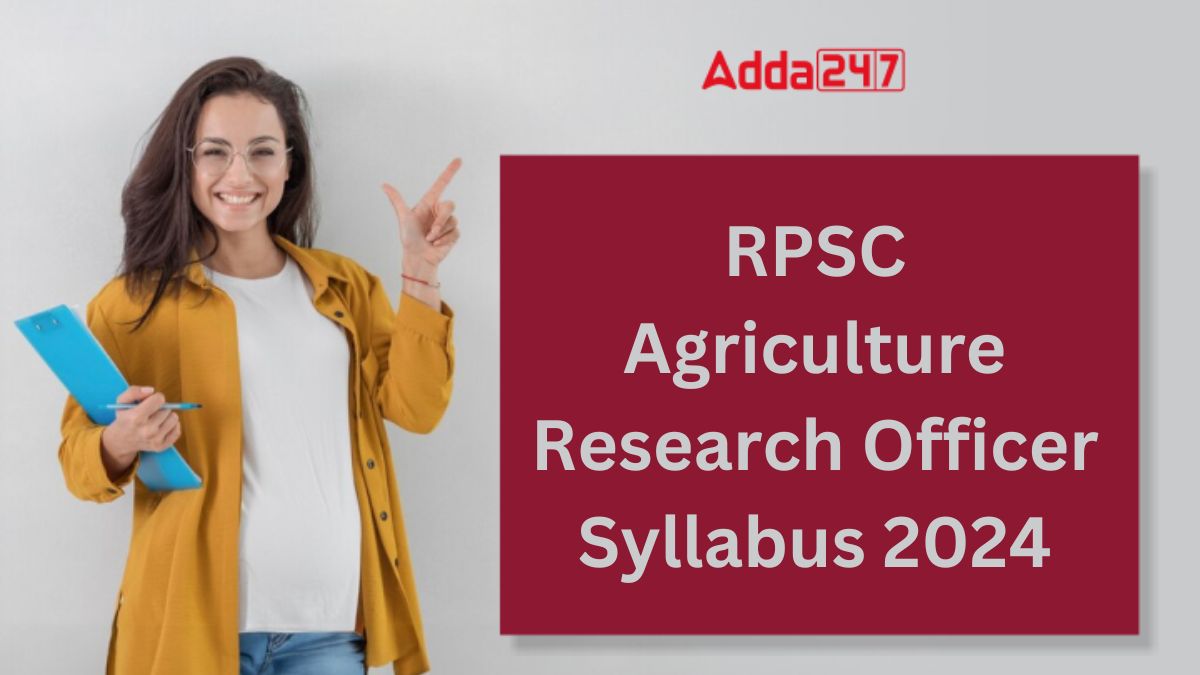

 OPSC OCS Syllabus and Exam Pattern 2026,...
OPSC OCS Syllabus and Exam Pattern 2026,...
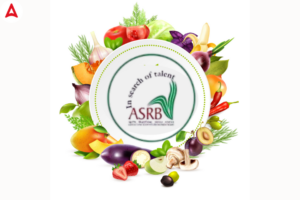 ASRB NET Vegetable Science Syllabus 2026...
ASRB NET Vegetable Science Syllabus 2026...
 RRB Section Controller Syllabus And Exam...
RRB Section Controller Syllabus And Exam...
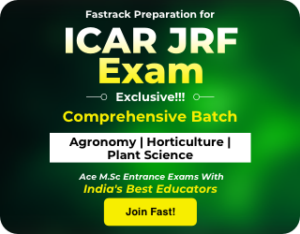

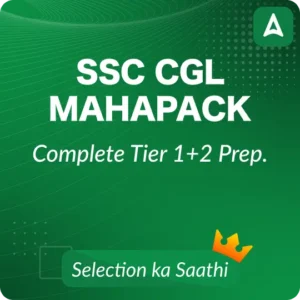
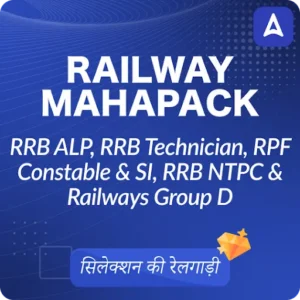
 Adda247 Job portal has complete information about all Sarkari Jobs and Naukri Alerts, its latest recruitment notifications, from all state and national level jobs and their updates.
Adda247 Job portal has complete information about all Sarkari Jobs and Naukri Alerts, its latest recruitment notifications, from all state and national level jobs and their updates.



